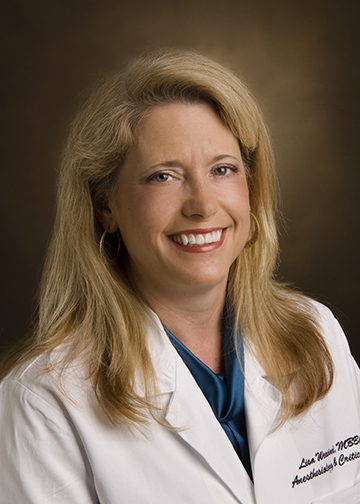News
- Invited Speaker and Panel lineup published.
- Program announced. Selected papers will be part of the KDD Health Day poster session in the evening. See Papers.
- Accepted paper list published. See Papers.
- Paper acceptance notification updated to Jun 12, 2019
- Announcing $500 travel grant each for the best paper and the best student paper, selected for the workshop. Please see updated call for papers.
Overview
Healthcare is, traditionally, a knowledge-driven enterprise with an enormous amount of data - both structured and unstructured and these data can impact positively on the development of data-driven healthcare including precision medicine. However, in the era of big data, the mining of this data in a manner that leads to clinically actionable outcomes remains a challenge. In the deep learning era, is knowledge extraction and modeling (e.g., feature engineering, label acquisition, and knowledge graphs) still critical? Can state of the art methods identify disease subtypes Can knowledge-backed AI lead to more interpretable informatic models? How do data scientists and physicians apply this knowledge in collaboration to further the field and improve healthcare? After witnessing so many great achievements from deep learning lately, we propose to invite world-leading experts from both data science and healthcare to discuss and debate the relevance and importance of knowledge, in order to address real challenges and make an impact in healthcare. More specifically, we plan to attract high-quality original research from emerging areas with significant implications in healthcare and invite open discussions on controversial yet crucial topics regarding healthcare transformation.
Program
DSHealth 2019 will be held as part of
KDD Health Day
on August 05, 2019. In addition to the workshop, selected papers will
also have the opprutunity to take part in the evening KDD poster
session as part of KDD Health Day.
Please refer to the KDD 2019 program
for up-to-date changes on venues and timings.
KDD Health Day Morning Session
Venue: Cook - Street Level, Egan
Timing: 8:00 am - 12:00 pm, August 05
DSHealth participitation:
Invited talk by Dr. Tae Hyun Hwang
Please check KDD Health Day
for more details.
KDD Health Day Poster Session
Venue: Idlughet Hall 3 - Street Level, Dena’ina
Agenda: Invited posters from Health Day at KDD Poster Reception
Timing: 7:00 pm - 9:30 pm, August 05
DSHealth participitation: Selected papers
Please check KDD Program
for more details.
DSHealth Schedule
Venue: Summit 3 - Ground Level, Egan
| Start Time | End Time | Title | Speaker |
|---|---|---|---|
| 1:00 pm | 1:10 pm | Introduction and Welcome | TBD |
| 1:10 pm | 2:10 pm | Oral Paper Presentations (15 mins each) #35: Predicting assisted ventilation in Amyotrophic Lateral Sclerosis using a mixture of experts and conformal predictors #42: Understanding Behavior of Clinical Models under Domain Shifts #45: Double Core Memory Networks for Mortality Prediction using Multimodal Intensive Care Data #52: Time-to-Event Prediction for Correlated Clinical Events based on State Space Model |
#35: Telma Pereira, Sofia Pires, Marta Gromicho, Susana Pinto, Mamede de Carvalho and Sara C. Madeira #42: Jayaraman J. Thiagarajan, Deepta Rajan and Prasanna Sattigeri #45: Zhenxing Xu, Yujuan Feng, Lin Gan, Xu Min, Anais Chalant, Ning Chen, Bin Yu, Ting Chen and Fei Wang #52: Emily Xue, Denny Zhou, Nan Du, Andrew Dai, Zhen Xu, Kun Zhang and Claire Cui |
| 2:10 pm | 2:30 pm | Spotlight Session 1 (2 mins each) # 3: SOAR: Shrinkage Optimized Active Learning with Joint Regularization for Electrocardiographic Signal Classification # 4: A Knowledge-Enriched Local Sequence Alignment Algorithm (KELSA) for Electronic Health Records # 6: Activity2Vec: Learning ADL Embeddings from Sensor Data with a Sequence-to-Sequence Model # 7: Finding Discriminative Subgroups of Brain Regions using Tensor Factorization # 8: Spatially Robust Deep Learning Application for Assessing the Facial Acne Severity Using Selfie Images # 11: Detection of Covariate Interactions by Deep Neural Network Models # 13: Medical Concept Representation Learning from Claims Data and Application to Health Plan Payment Risk Adjustment # 14: Aggregate-Eliminate-Predict: Detecting Adverse Drug Events from Heterogeneous Electronic Health Records # 15: Accurate Prediction of Medical Events based on Large Healthcare Claim Data |
TBD |
| 2:30 pm | 3:00 pm | Coffee and Poster Session | N/A |
| 3:00 pm | 3:30 pm | Spotlight Session 2 (2 mins each) # 17: A Systematic Approach to Detect Hierarchical Healthcare Cost Drivers and Interpretable Change Patterns # 20: Cost-aware Active Learning for Named Entity Recognition in Clinical Text # 22: Computational Phenotype Discovery via Probabilistic Independence # 24: Exploring difference in public perceptions on HPV vaccine between gender groups from Twitter using deep learning # 25: An Information Extraction and Knowledge Graph Platform for Accelerating Biochemical Discoveries # 29: An AI-Augmented Lesion Detection Framework For Liver Metastases With Model Interpretability # 30: Modeling the Uncertainty with Bayesian Deep Learning]{Modeling the Uncertainty in Electronic Health Records: a Bayesian Deep Learning Approach # 31: Evaluation of Embeddings of Laboratory Test Codes for Patients at a Cancer Center # 37: Infant Mortality Prediction using Birth Certificate Data # 43: Embed as you need: Evaluation of Random Walk and Poincare Embeddings for Healthcare Tasks # 47: Leveraging Linguistic Characteristics for Bipolar Disorder Recognition with Gender Differences # 49: Logical Form Information for Clinical Qestion Answering # 51: SLAM Endoscopy enhanced by adversarial depth prediction |
TBD |
| 3:30 pm | 3:40 pm | Award Presentation | TBD |
| 3:40 pm | 4:30 pm | Panel Discussion: Relevance and importance of knowledge driven AI, in order to address real challenges and make an impact in healthcare |
Fred Rahmanian (Moderator) Jasmine Wilkerson Lisa Weavind Fei Wang Maria Spiliopoulou |
| 4:30 pm | 5:00 pm | DSHealth Poster Session | TBD |
Invited Speaker
Dr. Tae Hyun Hwang, Cleveland Clinic Lerner College of Medicine, USA.
Bio:
Tae Hyun Hwang received his Ph.D. in Computer Science (Machine Learning and
Computational Biology) at the University of Minnesota Twin-Cites at 2011. He and his research
group lead machine learning and AI research at the Cleveland Clinic. Prior to his appointment at the Cleveland Clinic, he was a Research Associate in the Department of Computational Biology and Bioinformatics at Genentech and was a tenure-track faculty at the University of Texas
Southwestern Medical Center (UTSW) where he served as a co-director for UTSW Kidney
Cancer SPORE and led a computational team for UT Lung Cancer SPORE. He currently serves as a bioinformatics core director for NASA Specialized Centers of Research (NSCOR) as well as committees of various Machine Learning, Data Mining, and AI conferences.
He and his lab members from Translational Machine Learning and AI lab at the Cleveland Clinic are working on developing novel machine learning and AI algorithms that are readily applicable in the clinical setting to help patients with a lethal disease. His work has been published more
than 40 peer-reviewed journals such as Nature, Cell, Nature Neuroscience, and Cancer Cell, as
well as top machine learning, data mining and AI conferences including IEEE International
Conference on Data Mining (ICDM) and SIAM International Conference on Data Mining (SDM).
He is a recipient of the American Cancer Society Young Investigator Award and NCI UTSW-MD
Anderson Lung Cancer SPORE Career Development Award.
| Title | Deploying AI in healthcare in the wild: Lessons, challenges, and opportunities |
| Time | 10:00 am - 10:30 am |
| Venue | Cook - Street Level, Egan |
Panel
| Topic | Relevance and importance of knowledge driven AI, in order to address real challenges and make an impact in healthcare |
| Time | 3:40 pm - 4:30 pm |
| Venue | Summit 3 - Ground Level, Egan |
Accepted Papers
We have accepted 27 papers for presentation at the workshop. All papers will be presented as posters within the workshop. In addition, we have selected 4 papers for oral presentation. PDF version of the final papers, if provided by the authors, are hyperlinked below.
Oral Presentations
|
#35
Predicting assisted ventilation in Amyotrophic Lateral Sclerosis using a mixture of experts and conformal predictors Telma Pereira, Sofia Pires, Marta Gromicho, Susana Pinto, Mamede de Carvalho and Sara C. Madeira |
|
#42
Understanding Behavior of Clinical Models under Domain Shifts Jayaraman J. Thiagarajan, Deepta Rajan and Prasanna Sattigeri |
|
#45
Double Core Memory Networks for Mortality Prediction using Multimodal Intensive Care Data Zhenxing Xu, Yujuan Feng, Lin Gan, Xu Min, Anais Chalant, Ning Chen, Bin Yu, Ting Chen and Fei Wang |
|
#52
Time-to-Event Prediction for Correlated Clinical Events based on State Space Model Emily Xue, Denny Zhou, Nan Du, Andrew Dai, Zhen Xu, Kun Zhang and Claire Cui |
Poster Presentations
Call for Papers
We invite full papers, as well as work-in-progress on the application of data science in healthcare. Topics may include, but not limited to, the following topics (For more information see workshop overview) with special focus on techniques that are aimed at bridging the gap between data and knowledge.
- Knowledge extraction and modeling with rule-based system or deep learning methods
- Word and knowledge embedding techniques
- Knowledge graph construction, integration, and related mining
- Distill actionable insights from data and knowledge (e.g., expert systems)
- Human-in-the-loop data science and machine learning
- Knowledge transfer and domain adaptation
- Visualization for health knowledge and model interpretation
- Heterogeneous data processing, integration and meta-learning
- Best practice in data science pipeline
- Open source data science tools for improving model transparency and interpretability
- Innovative evaluation metrics and tools for bias-removal, and fair and comprehensive comparison
- Personalized recommendation systems using literature or patient-generated health data
Papers must be submitted in PDF format to easychair https://easychair.org/conferences/?conf=dshealth2019 and formatted according to the new Standard ACM Conference Proceedings Template . Papers must be a maximum length of 4 pages, including references.
The program committee will select the papers based on originality, presentation, and technical quality for spotlight and/or poster presentation.
The best paper and the best student paper will be awarded 500 travel grant each. Please indicate whether the primary author is a student in the easychair submission form.
Key Dates
- Paper Submission opens: Apr 15, 2019
- Paper Submission deadline: May 25, 2019
- Acceptance Notice: Jun 12, 2019
- Workshop Date: Aug 05, 2019
All deadlines correspond to 11:59 PM Hawaii Standard Time ( HST).
Organizers
- Fei Wang, Cornell University, USA
- Pei-Yun Sabrina Hsueh, IBM Research, USA
- Prithwish Chakraborty, IBM Research, USA
- Carly Eckert, Kensci Inc. and University of Washington, USA
- Mansoor Saqi, King's College London, UK
- Lixia Yao, Mayo Clinic, Rochester MN, USA
- Fred Rahmanian, Geneia, USA
- Muhammad Aurangzeb Ahmad, Kensci Inc. and University of Washington - Tacoma, USA
- Ankur Teredesai, Kensci Inc. and University of Washington, USA





